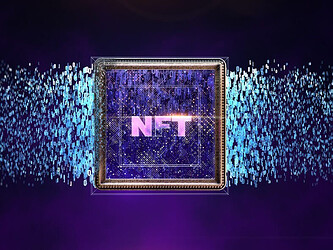The hackathon will include a series of workshops, including an opportunity to learn how to create and market NFTs. The Hackathon will focus on four challenges: ‘Build on Rarible protocol’, ‘NFT Payment Solutions’, ‘Scalable NFT Art Projects’, and ‘Gaming and NFTs’. Participants may win more than USD $ 68,000 in prizes.
Other sponsors alongside Gibraltar Finance include Rarible, Circle, IPFS, and Filecoin.
The NFT Vision Hack is organized by Gibraltar-based Nifty Labs, a partnership between Indorse, a pioneer in blockchain and NFT space and Coinsilium, a blockchain and open finance venture builder.
Albert Isola MP, Minister for Digital and Financial Services, HM Government of Gibraltar, issued the following statement on the hackathon:
“The NFT Vision Hack 2021 is a wonderful opportunity for industry-leading developers and artists to collaborate, share expertise and find innovative solutions using NFT technologies. Events such as these pave the way for the future of the industry, its uses and applications. As the first jurisdiction to introduce legislation around Distributed Ledger Technology, HM Government of Gibraltar is a proud sponsor of the NFT Vision Hack. We look forward to seeing exciting new solutions as global interest in NFTs continues.”
Read more at link.
What Is a Non-Fungible Token (NFT) and Are They Safe?
A non-fungible token is more comparable to art. If you trade a Picasso for a Monet, you’re getting a completely different, unique piece of art. The same, theoretically, goes for these tokens.
They’re used to create a scarcity that’s verifiable. While anyone can share any of the same GIFs at any time, an artist could put their NFT ‘stamp’ on a GIF and make it the one and only ‘original.’ It makes the creation of fake collectibles pointless because each NFT can be traced back to its origin.
From Coin Codex: What are NFTs?
NFTs are blockchain-based tokens that are used to represent ownership of an asset. NFT is an acronym that stands for »non-fungible token«.
In order to better understand the significance of »non-fungible«, it’s best to compare it with the term »fungible«. Most tokens that you’ve likely dealt with in the cryptocurrency market are fungible – individual units of the token are interchangeable. Examples of fungible tokens are UNI, MKR. For example, every UNI token is the same and none of them have any unique properties.
NFTs are non-fungible, which means they are not interchangeable with each other. Each NFT has a unique identifier that distinguishes it from other tokens issued on the same blockchain.
